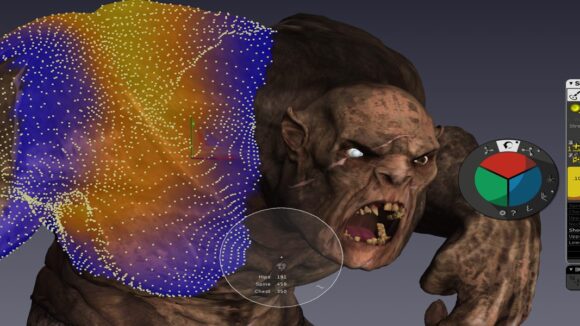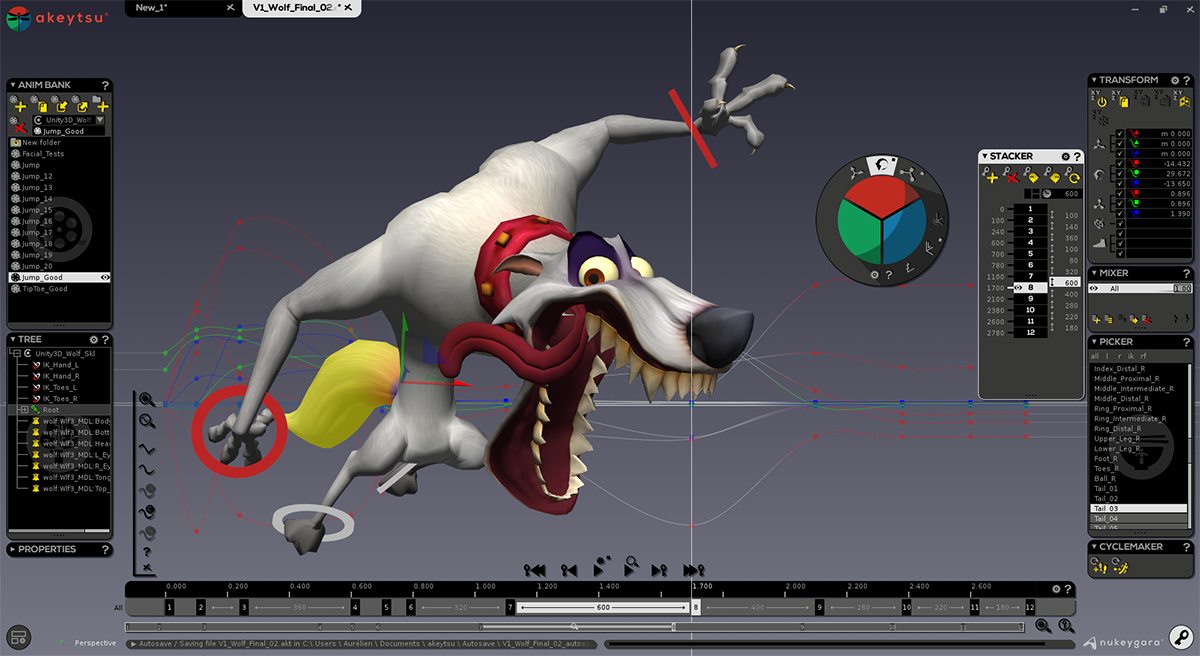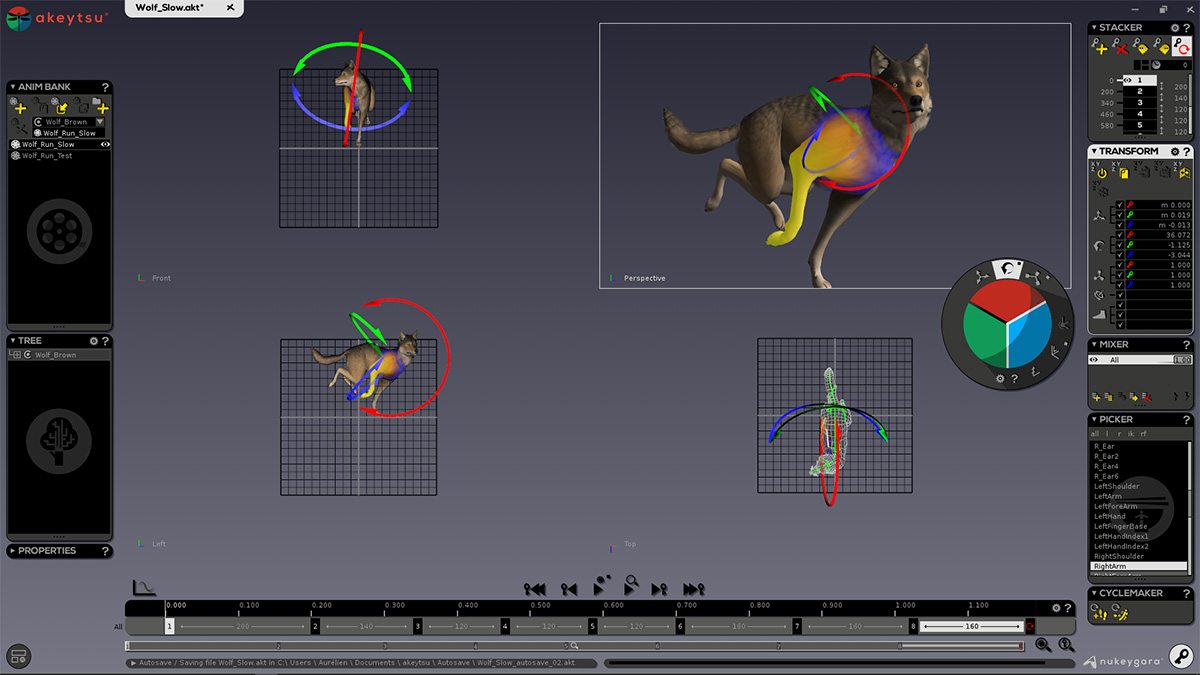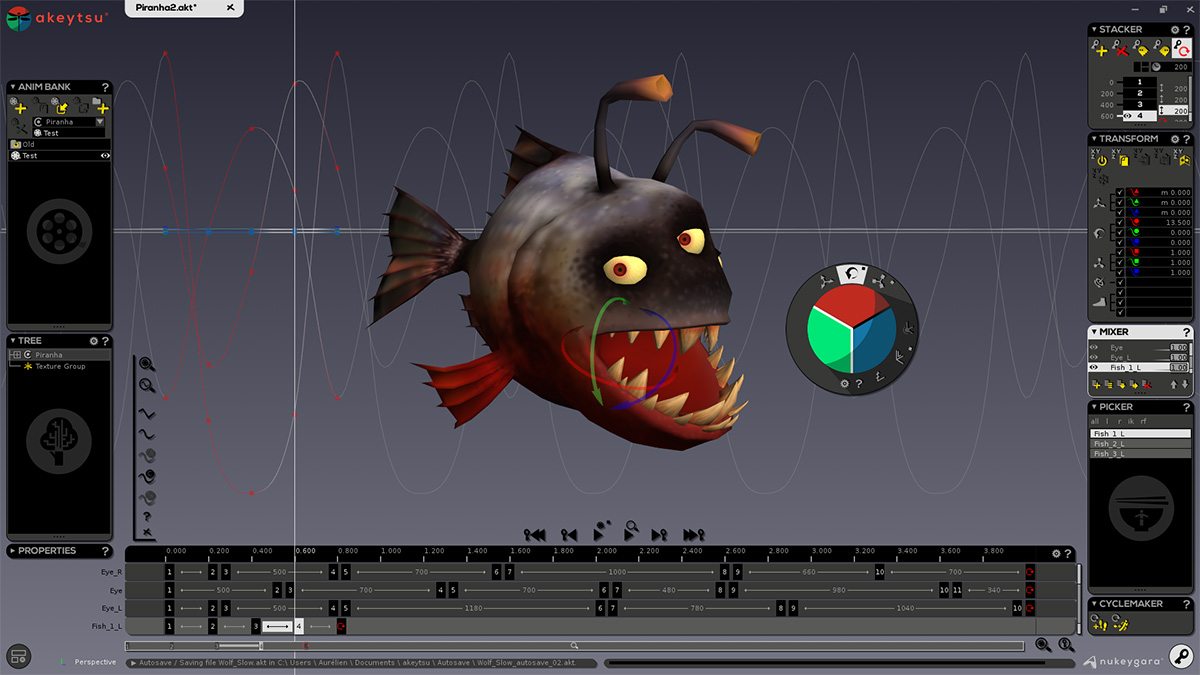

Akeytsu Wants To Change The Way You Rig And Animate Characters
Software company Nukeygara has launched its animation tool Akeytsu with newly-built animation and rigging workflows.
You might recognize that name – Akeytsu. The tool has been in a lengthy beta testing phase, and was officially released on Wednesday as Akeytsu 1.0.
Cartoon Brew asked Nukeygara co-founder Aurélien Charrier about the development of Akeytsu, why its rigging and animation workflow was designed differently than most animation tools, and who the software is best suited for.
What is Akeytsu?
Before we discuss what Akeytsu does, here’s why Charrier created it. He graduated from the famed Gobelins school in Paris after focusing on 2d animation there, and then worked immediately in 3d games. He and Nukeygara co-founder Cédric Vidal-Duvernet contributed to titles such as Alone in the Dark and Kya: Dark Lineage.
“It involved a high volume of animation, and you have to go through many iterations over the milestones,” said Charrier. “Doing all of this with the standard software at the time was extremely painful. It was too long and too complex. As a lead animator, I was fighting with the lack of productivity on a daily basis, and I became very bothered.
“That started the initial discussions between my partner and I, and we wondered, why don’t we do it ourselves? We wanted to build software from scratch, creating a dedicated toolset for 3d animation and rigging, because we knew it could not remain as complex as it was – and still is. Our daily pains pushed us to find new ways to re-think the overall rigging and animating workflow.”
So, what are these new ways of animation and rigging inside Akeytsu? According to Charrier, these include ‘industry-first’ animation tools include a 2d manipulator called the spinner which handles rotation, translation, reverse foot, and inverse kinematic pole vector controls. There’s also something called the cyclemaker which can be used to create cycles by automatically completing part of a motion or mirroring a motion from one side to the other.

“The way we handle keyframes is also different,” added Charrier. “The animator has access not only to their time-bar, but it’s also combined with our stacker, which has been inspired by the exposure sheet used in 2d traditional animation and allows them to play with both. There are no hidden menus, just two straightforward panels, one for rigging, the other one for animation, where the animator can see all of their tools, and most importantly, the motion they are working on.”
Rigging in Akeytsu was deliberately set up to lighten what can typically be a heavy process. Again, Charrier says the change came from experience, which directly influenced the rigging tools in the software.
“A light rig tool allows a unique skeleton driving FK and IK, without any control rig structure,” explained Charrier. “You select your skinned mesh to handle the character. In Akeytsu, you can modify your rig in a few steps and continue to animate. This, connected to a duo skin process, back and forth between rigid pre-skinning and final smooth skinning, is very efficient, and allows the animator to rapidly pose and animate.”

Better from beta
Akeytsu entered beta testing in June 2015. Since then, the company says the software was tested by thousands of animators in gaming and other animation projects. It resulted in some changes to the toolset.
“The automatic part of our skinning process was fully re-thought and far improved to make duo skin,” said Charrier. “The cohabitation between our smart IK/FK solver and our animation layers was strongly solidified. Our reference pose process – having an animation in it pose different than the bind pose – was fully reworked, too.”
An early adopter of Akeytsu was Hyperkinetic Studio in Los Angeles, which is making the game Epic Tavern. Other current users include game and vr studios DIVR Labs, Parallel Studio, and Daedalic Entertainment.
Charrier told Cartoon Brew that Akeytsu is aimed at anyone needing to produce a lot of character animation. There will be three versions available – a non-commercial Learn license which is free for students and teachers, and $39 for educational institutions; an Indie license ($179) for companies generating less than $200K annual revenue; and the Pro license ($589). Charrier hopes that the lengthy beta testing process, and different levels of entry for Akeytsu means animators will consider it as a new option in their workflow.

“The best way I can say it, from what we’ve been told by our users, is that Akeytsu brings back the joy of animating for the artist,” said Charrier. “It also cuts down the cost of animation for the studio, and it provides anyone who wants to start doing 3d animation a very handy and accessible toolset to jump easily into this fabulous world.”
You can find more information about Akeytsu on Nukeygara’s website.
